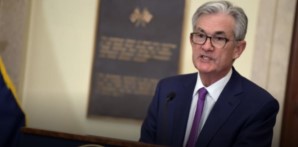
The Fed is extending its lending programs until the end of the year

The Federal Reserve said Tuesday that it is extending its menu of lending programs to businesses, governments and individuals to the end of 2020.
Originally set to expire Sept. 30, the myriad facilities, stretching from credit to small businesses up to the purchase of junk bonds now will stretch to Dec. 31.
The Fed began rolling out the initiatives as market functioning broke down in March. A lack of liquidity stemming from fears over the coronavirus crisis froze markets and pushed the central bank into various credit facilities, a number of which had their origins during the financial crisis.
“The extraordinary Federal Reserve response to the COVID-19 pandemic, supported by Treasury’s equity capital, has played a vital role in improving liquidity and restoring market function,” Treasury Secretary Steve Mnuchin said. “Through this extension, we will continue to support the flow of credit to American workers, businesses and municipalities.”
Treasury had to sign off on the extension as it provides funding, which the Fed can then use as collateral to lever up.
Programs covered include facilities for primary dealers and money markets, corporate bond purchases on both the primary and secondary markets and the most recent rollout, the Main Street Lending Program.
A lending program for local and state governments already had been set to run to Dec. 31 and the commercial paper facility, which provides short-term funding for businesses, expires March 17, 2021.
1. myriad (adj.)
very large in number, or having great variety
2. bonds (n)
an official paper given by the government or a company to show that you have lent them money that they will pay back to you at a particular interest rate
3. liquidity (n)
the fact of being available in the form of money, rather than investments or property, or of being able to be changed into money easily
4. equity (n)
the value of a company, divided into many equal parts owned by the shareholders, or one of the equal parts into which the value of a company is divided
5. collateral (n)
valuable property owned by someone who wants to borrow money, that they agree will become the property of the company or person who lends the money if the debt is not paid back
- What had the Treasury had to sign off?
- Why is FEd extending its lending programs?
- What does the lending program include?
- According to the article, what is the date of the original expiration date of lending?
- Is it possible to create a successful business without borrowing any money at all?
- What happens when a business fails to repay its loans? Have you ever experienced this?
- Do you think that banks should make it easier for small businesses to take out loans?
- Do you think that borrowing money is always a risk?
- Have you ever taken out a loan in your life? What was it for?

 Pre-Advanced
Pre-Advanced 
